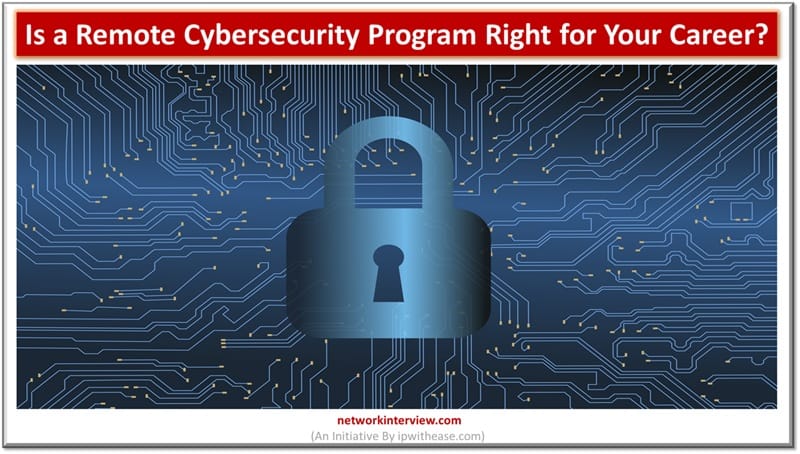
Exploring Digital Defense: Is a Remote Cybersecurity Program Right for Your Career?
The Evolving Cyber Threat Landscape
Attack surfaces multiply faster than most organizations can patch. Last year, global ransomware incidents spiked over 37%, according to multiple threat intelligence reports, and IoT devices are still shipping with laughably weak security controls. Supply chain attacks are no longer exotic; they are a weekly headline. The tempo of assaults has shifted from sporadic to relentless, and every unsecured port is now an opportunity for exploitation. If your defense strategy isn’t keeping pace, your network is already a soft target.
Key Advantages of a Remote Cybersecurity Offering
Flexibility without sacrificing rigor is the defining edge. The right program can deliver full-stack training without chaining you to a single location.
- Adapt study schedules around unpredictable workloads.
- Access realistic, browser-based labs for hands-on engagement.
- Leverage cost savings compared to in-person programs, avoiding relocation or commuting expenses.
With an effective distance cyber protection program, working professionals can keep operational commitments intact while still advancing their skill set.
What to Look for in a Virtual Cyber Security Curriculum
Accreditation is non-negotiable. Whether regional or programmatic, it signals the curriculum meets recognized standards. Look for modules anchoring in network defense, incident response, and secure coding, paired with simulated attack scenarios to strengthen tactical thinking. Scrutinize the instructors—seasoned practitioners outrank academic theorists—and favor programs with strong pipelines to industry through partnerships or corporate collaborations. The goal is not just learning theory but earning credibility that can withstand scrutiny.
Mastering Essential Skills in a Digital Protection Program
A well-curated syllabus should sharpen your proficiency in ethical hacking, threat modeling, digital forensics, and cloud security fundamentals. These aren’t abstract concepts—they require targeted practice. Use open-source penetration tools to replicate scenarios after class. Join capture-the-flag events to pressure-test your reflexes under live conditions. A robust digital cybersecurity degree pushes you beyond memorizing frameworks into executing precision defenses in the wild.
Navigating Specializations and Electives in Distance InfoSec Degrees
Specializing forces depth. Cyber forensics draws you into the art of reconstructing digital crime scenes. Risk management blends technical assessment with executive communication. Penetration testing hones surgical aggression against infrastructures, while compliance locks you into regulatory war rooms. Electives should be tactical choices. If your eyes are on a DevSecOps role, cloud security isn’t optional—it’s your future battlefield.
Balancing Life and Learning in an Internet-Based Education Model
Remote study doesn’t magically free up your time. You need a strategy. Calendar blocking cuts through chaos for working adults and parents. Productivity apps keep inertia from stealing hours. Online study groups maintain accountability in an otherwise solitary format. An internet-based structure can collapse under poor discipline, but with tight controls, it can be a catalyst for sustainable growth.
Mapping Career Pathways After Earning Your Distance Cybersecurity Credential
The pipeline is well-defined. You start as a security analyst watching logs and hunting anomalies. Progress into incident responder roles where speed and judgment control your fate. Architects design complex fortresses, and seasoned veterans move into CISO tracks where politics matter as much as protocols. With a respected distance cybersecurity certificate or remote security qualification, expect entry salaries north of $80,000, with senior practitioners commanding numbers in the mid six figures. Demand isn’t cooling any time soon.
Investing in Your Future with a Specialized Security Qualification
The return on investment is tangible. Completing an online cyber security degree can position you for a salary jump, greater job security, and access to high-demand sectors. Cyber defense skills are scarce enough to put recruiters in chase mode. In a competitive hiring field, this credential slices through the noise of generic resumes and signals readiness for higher responsibility.
Charting Your Path in Cyber Defense
Remote programs fit a reality where cyber threats evolve faster than commute schedules. The right syllabus demands rigor, offers credible instruction, and embeds practical immersion. Compare institutions, secure their syllabi, and mine alumni experiences for unfiltered intel. The professionals who commit now, sharpening their edge through targeted study, will be the ones steering the response to tomorrow’s inevitable digital storms.
Tag:Security



